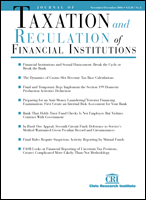Is the Delaware Judiciary Heightening its Standards for Director Independence and Good Faith?
Author: Michael D. Goldman.; John F. Grossbauer.; Catherine A. Strickler.
Source: Volume 18, Number 02, November/December 2004 , pp.25-32(8)

< previous article |next article > |return to table of contents
Abstract:
This summary of recent corporate developments helps lay the foundation to query whether these decisions can be seen as the Delaware judiciary’s attempt to heighten corporate governance in response to the Sarbanes-Oxley Act and the new era of increased scrutiny for corporate actions. Specifically, the decisions discussed below comment, among other things, upon the independence of directors and the importance of good faith in directors’ actions. Instead of providing a litmus test for the standards that govern independence and good faith, however, these cases emphasize that questions of independence and good faith of director actions are driven by the unique facts underlying each case and the context in which the question is posed. First, in In re Oracle Corp. Derivative Litigation,1 Vice Chancellor Strine declined to accept the recommendation of Oracle’s special litigation committee that litigation alleging insider trading by certain directors should be dismissed. The court held that non-monetary ties between the SLC and the directors whose conduct was at issue raised a reasonable doubt as to the SLC’s ability to impartially consider whether the action should be dismissed. Next, in Beam v. Stewart, although Chancellor Chandler found that a majority of the directors were independent for purposes of evaluating a stockholder’s demand that a company bring an action against its founder, the court took the opportunity to expound upon Vice Chancellor Strine’s idea that personal ties, such as friendships, are capable of affecting a director’s ability to act independently. Then, in In re eBay, Inc. Shareholders Litigation, Chancellor Chandler returned to the more traditional notion of a material financial connection as affecting director independence, but interestingly applied the concept of a material financial connection to include consideration of the effect the non-employee director’s options to purchase shares. With respect to the concept of good faith, in In Re Walt Disney Company Derivative Litigation, Chancellor Chandler found that the facts as alleged created a claim that the directors’ actions (or lack of action as it were) were not taken in good faith, thus obviating the company’s Section 102(b)(7) exculpatory provision.2 Notably, the Chancellor found that the complaint alleged facts that, if proven, would justify a finding of a lack of good faith even though none of the directors had any material connection, financial or otherwise, to the conduct at issue. The import of good faith in the corporate context thus having been reestablished, the Delaware Supreme Court then issued an order in Emerald Partners v. Berlin that, while quoting language from Chancellor Chandler regarding good faith, went on to hold that the court never had to reach the arguably viable claims that certain directors lacked good faith in merger negotiations because the plaintiff shareholder had failed in the first instance to establish an unfair merger price.Keywords:
Affiliations:
1: Potter Anderson & Corroon LLP; 2: Potter Anderson & Corroon LLP; 3: Potter Anderson & Corroon LLP.